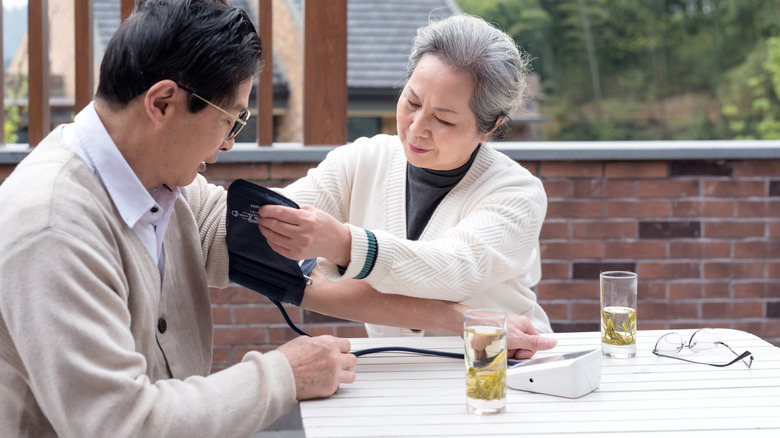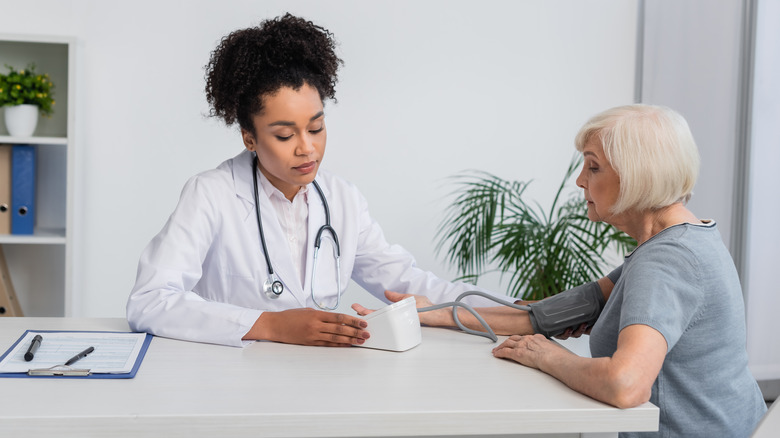Why You Should Be Taking Your High Blood Pressure Seriously
You probably know the dangers associated with high blood pressure. According to the Centers for Disease Control and Prevention (CDC), part of the reason it can be so dangerous is that many people with high blood pressure aren't aware of it. The CDC explains that while your blood pressure can rise and fall throughout the day, high numbers on a regular basis should not be ignored — especially if you experience a very high spike.
If your blood pressure quickly reaches 180/120 or more, it is called a hypertensive crisis, and this is even more serious than regular high blood pressure. The American Heart Association explains that there are two kinds of hypertensive crises: urgent and emergency. A hypertensive crisis is considered urgent when you have two significantly high readings over a span of five minutes, but have no other symptoms. If this happens, you should talk to your medical care provider immediately. With a hypertensive emergency, you not only have a high reading, but also experience symptoms like chest and/or back pain, shortness of breath, weakness, and difficulty speaking. In this scenario, you should always call 911 right away.
Extremely high numbers can be dangerous
While there has been progress when it comes to managing high blood pressure, hospitals have seen a rise in cases in which people experience a hypertensive crisis. Data recently published in the Journal of the American Heart Association revealed that hospitalizations for hypertensive crises doubled between 2002 and 2014. Researchers said that more research is necessary to understand why.
Ignoring a hypertensive crisis can lead to damaged blood vessels, which could make it difficult for the heart to pump blood. In turn, this could lead to a stroke, a heart attack, angina, or damage to the kidneys or eyes, according to the American Heart Association.
To stay on top of your blood pressure, the CDC suggests taking regular readings. If you have high blood pressure, you can manage it by getting physical exercise, eating a healthy diet, controlling stress, and not smoking. Doctors sometimes prescribe medication for some people with high blood pressure.


